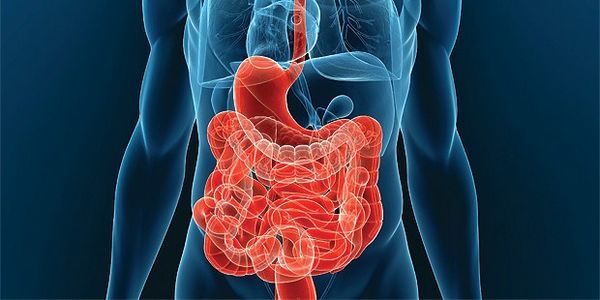Dyspepsia – treatment of disease. Symptoms and prevention of diseases of Neuralgia

Dyspepsia – What is this disease? Neuralgia is a disruption of the gastrointestinal tract, where noted difficulty in digestion. As a matter of fact, syndrome of dyspepsia is defined as pain or discomfort, which is localized in podlojecna area near the median line.
Dyspepsia – The cause of the
Neuralgia may be caused by different reasons. In some cases, causes other diseases Act, eg, peptic ulcer, gastritis, stomach cancer.
Sometimes despepsiceskie disorders occur when stress. Maybe, due to the fact, that in the case of a person often sighs and swallows big portions of the air, What causes distension of the stomach or intestines. This creates a stretching of the gastrointestinal tract, swelling occurs. Besides, emotional stress increases the discomfort, associated with dyspepsia.
The cause of inflammatory diseases of the gastrointestinal tract (and related phenomena of dyspepsia) frequent Helicobacter infection.
Development of dyspepsia promotes unhealthy eating habits. In particular, excess consumption of plant carbohydrates leads to the development of fermentative dyspepsia; When abuse of fatty foods develops muscular neuralgia; If excessive use of protein golgari rot develops neuralgia.
Dyspepsia – symptoms of dyspepsia
The main symptoms of dyspepsia are pain and discomfort in the upper abdomen, Chest. Often, dyspepsia accompanied by swelling and acute intestinal sounds. In some cases, eating symptoms aggravated, and some patients - reduces. Dyspepsia also may lead to poor appetite, constipation, diarrhea, toshnote, vomiting and flatulence.
Dyspepsia – Diagnostics
At the discretion of the physician in diarrhoeal disorders can be assigned the following research methods:
- · Esophagogastroduodenoscopy;
- · ultrasound examination;
- Clinical and biochemical blood tests;
- · X -ray examination;
- · Electro -gastroenterography;
- Daily monitoring of the acidity of the stomach;
- · Scintigraphy of the stomach;
- · Analyzes for the determination of a Helicobacter infection;
- · Esophagomanometry;
- · Anthropodenal manometry;
- · other research methods.
Sometimes neuralgia testifies that disease, so long neuralgia should be the occasion for other research.
Dyspepsia – Types of disease
Dyspepsia may be organic and functional. In the first case, the cause of dyspepsia are such diseases, as stomach ulcer and duodenal ulcer, chronic pancreatitis, cholelithiasis, gastroesophageal reflux disease and other.
Functional dyspepsia is made when three conditions:
- · Constant symptoms, that last more 12 weeks throughout the year;
- · отсутствие органических поражений желудочно-кишечного тракта;
- · симптомы не стихают после дефекации.
Dyspepsia – Actions of the patient
When symptoms of dyspepsia should first analyze the possible causes of this condition. If objective reasons (poor nutrition, overeating and so on) no, You should consult your doctor and go through all the necessary research.
Dyspepsia – treat dyspepsia
Treatment of dyspepsia should be integrated, taking into account all the possible causative diseases. Treatment involves not only the use of drugs, adsorbents at first, But adherence to dietary nutrition (hereinafter referred to as the observance of the principles of a balanced diet).
Depending on the causes of dyspepsia drug therapy may include the reception of antacid drugs, prokinetics, antisecretory medication, antibiotics (to eliminate the Helicobacter pylori infection) and drugs, enabling motoriku bowel (trimedat).
Dyspepsia – complications dyspepsia
Dyspepsia may be complicated by the following States:
- · резкое снижение массы тела;
- · продолжительное ухудшение аппетита;
- · синдром Мелори-Вейса – разрыв слизистой оболочки нижнего отдела пищевода с последующим желудочным кровотечением. This condition can be life-threatening patient.
Dyspepsia – Prevention
Prevention of dyspepsia is reduced to timely treatment of inflammatory diseases of the digestive tract. Healthy eating, abandoning bad habits also reduce the likelihood of developing diarrhoeal disorders.
